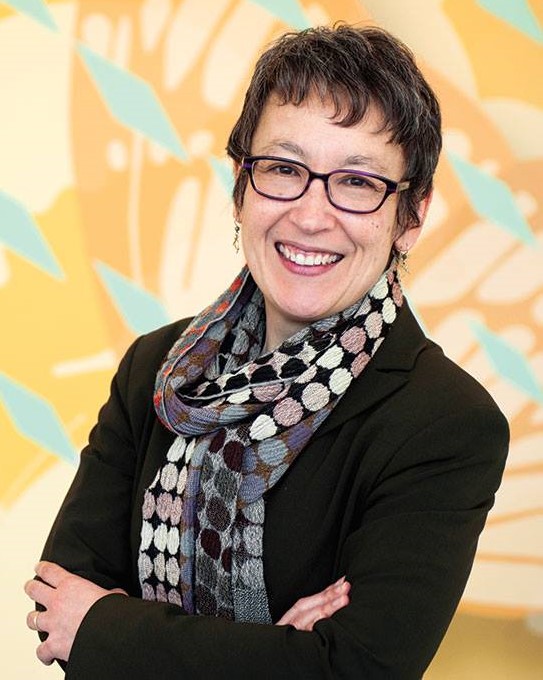Reimagining Child Protective Services Reports for Families Experiencing Intimate Partner Violence

Maya I. Ragavan, MD, MPH, MS, FAAP
October 24, 2022

Elizabeth Miller, MD, PhD, FAAP
October 24, 2022

Kimberly A. Randell, MD, MSc, FAAP
October 24, 2022
“It took me a while to trust doctors again,” a mother shared at the start of a well-child visit. She explained that several years ago, she disclosed to a physician that she was experiencing emotional and physical abuse from her ex-partner. She was hoping to be listened to, to be heard. Immediately following this disclosure, the clinician began talking about safety for her children. “I told them, ‘He doesn’t hurt my children.’ I told them, ‘That’s not what I need right now.’ But it didn’t matter.” The clinician filed a child protective services report. “That whole experience was traumatic.”
Intimate partner violence is common and impacts the health of survivors and their children. As violence prevention researchers and pediatricians in outpatient and emergency department settings, we believe that pediatric clinicians have a unique opportunity and an urgent responsibility to provide healing-centered care for intimate partner violence survivors that centers their strengths, needs, and priorities.
Research has underscored the extent to which child protective services reporting overall is inequitable; reporting in the context of intimate partner violence brings potential for additional harm. Children of color (particularly Black and Indigenous children) are disproportionately represented within protective services and are more commonly removed from their homes. These disparities layer upon implicit bias and structural racism within the health care system to compound harm. Additionally, child protective services is used by partners to control intimate partner violence survivors and abuse may escalate after CPS reporting. In a study on mandated reporting of nearly 3,500 IPV survivors, 50% said the report made their situation much worse.
So how can we shift to supporting intimate partner violence survivors and their children?
Start with slowing down. We know first-hand in our clinical work that this is challenging and filing a CPS report requires the same intentionality that we apply to any complex medical decision. Reporting, particularly in the context of IPV, should not simply be part of algorithms or another “to do.” Remember that the intent of filing a CPS report is to maximize a survivor’s and their child’s safety and minimize potential harm.
Never use the words “reporting” with survivors, as this is often interpreted as punitive and hurtful. Rather, consider this language:
“What is happening to you is scary, and I am so grateful you shared this with me. Let’s work together to ensure you and your children can be safer. And in this instance, there are laws in our state that require that those who are responsible for children’s safety notify child protective services. I’d like to do this call with you so that we can make sure to communicate accurate information to authorities. I also want you to know that you are not to blame. This is to focus on your safety, not because you have done anything wrong.”
Know your state laws; most states do not require CPS reports solely for IPV. A Delphi study found that pediatric IPV experts believe reporting is appropriate if the child is being directly harmed, but not for the presence of IPV alone.
When CPS reporting is indicated, we must support families. This starts with listening, validating, and affirming, as well as tailoring further supports, including connection to victim services agencies and follow-up visits, to match each survivor’s needs.
Survivors should be included in the process of making CPS reports. Client-centered reporting allows survivors to share with CPS concerns about their safety, increases the likelihood of the report translating to additional supports and services for the families, and reduces the likelihood of the IPV survivor being blamed and further isolated.
Pediatric clinicians need space for conversations and training around the complexity of CPS in the context of IPV. In some states, we are mandated to receive continuing education on child abuse and neglect, yet we often receive limited training on supporting IPV survivors or understanding how CPS reports may be harmful to survivors.
Advocate for the system-level changes required to effectively support survivors. These may include increased time for clinicians to spend with IPV survivors, partnership development with victim service agencies, policies that limit law enforcement presence in health care settings, and payment models that reimburse the provision of IPV counseling and interventions.
“As a profession, we must continue to examine our relationship with the CPS system, which, like many systems (including health care), is deeply broken.”
As a profession, we must continue to examine our relationship with the CPS system, which, like many systems (including health care), is deeply broken. Pediatricians work within two complex truths. As mandated reporters, we are required to file CPS reports in cases of child abuse and neglect with the intent of increasing safety for children. However, we must also recognize that we are embedded in a biased and deeply inequitable system reporting to another flawed system. These reports may cause harm to IPV survivors and contribute to perpetuating structural inequities and racial disproportionality.
This October, for National Domestic Violence Prevention Month, we recommend two actions for all pediatric clinicians. First, hold space in your clinical setting to talk about the complexity of CPS reporting, the potential harm reports may cause, and how we might reimagine reporting procedures and policies. Consider discussing the Futures Without Violence CPS reporting guide or a book by scholar Dorothy Roberts, a leading voice in reimagining the CPS system. Second, develop partnerships with victim service agencies that can help support survivors and their children (see IPV Health Partners for guidance). The AAP IPV webpage provides additional resources.
Pediatricians have long been fierce and dedicated advocates for children and families. Together we can reimagine systems that better support IPV survivors and their children.
*The views expressed in this article are those of the author, and not necessarily those of the American Academy of Pediatrics.
About the Author
Maya I. Ragavan, MD, MPH, MS, FAAP
Maya I. Ragavan, MD, MPH, MS, FAAP (she/her), is an assistant professor of pediatrics at the University of Pittsburgh Medical Center Children's Hospital of Pediatrics and the associate vice chair for diversity equity and inclusion research for the Department of Pediatrics.
Elizabeth Miller, MD, PhD, FAAP
Elizabeth Miller, MD, PhD, FAAP, is the distinguished professor of pediatrics, public health, and clinical and translational science and holds the Edmund R. McCluskey Chair in Pediatric Medical Education at the University of Pittsburgh School of Medicine.
Kimberly Randell, MD, MSc, FAAP
Kimberly Randell, MD, MSc, FAAP (she/her), is a pediatric emergency medicine physician at Children’s Mercy Kansas City and professor of pediatrics at the University of Missouri-Kansas City School of Medicine.